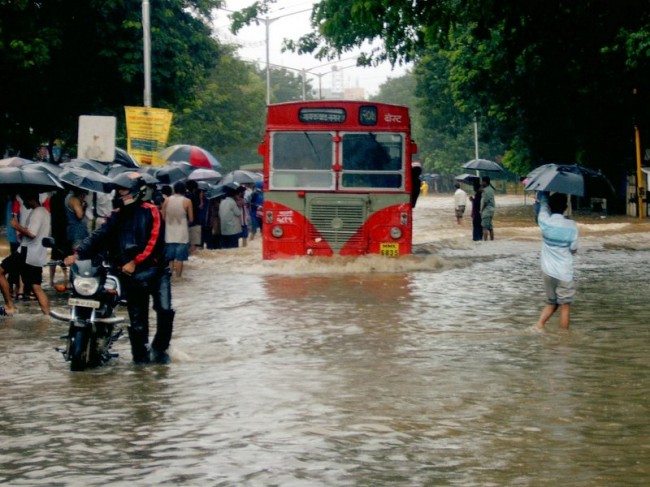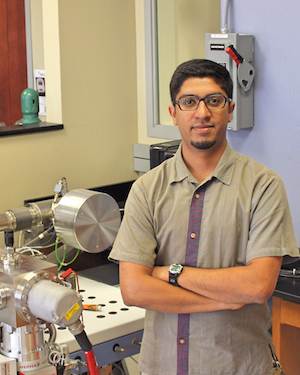Follow Jackson School Grad Student on Expedition to Study the Indian Monsoon and Climate Change
November 24, 2014

Each summer, India is pounded with intense rainfall, causing flooding and landslides that destroy homes and wreak havoc on communities. But the billion-plus population relies on the monsoon season to bring vital rains to India’s farmland.
Yet it remains unclear exactly how the Indian monsoon developed in the past—and, more importantly, how it might change in the future for a country that is home to roughly 20 percent of the world’s population.
Working to answer these important questions is Kaustubh Thirumalai, a Ph.D. student at the Jackson School of Geosciences’ Institute for Geophysics. He will be among 30 international scientists aboard the scientific drillship JOIDES Resolution that sets sail on Nov. 29.
“The Indian monsoon is a huge climatological phenomena,” says Thirumalai, originally from Bangalore. “Trying to understand how it may change in the future, especially considering global warming, requires a thorough understanding of its past variability.”
Indeed, the June-to-September monsoon season arrived late in 2014 and ended 12 percent below the seasonal rainfall average, according to the India Meteorological Department. It was India’s worst monsoon season since 2009.
The two-month expedition, part of the International Ocean Discovery Program, takes place in the Bay of Bengal. Scientists will drill deep down into the rocky layers of the seafloor in an effort to reconstruct past Indian monsoon variability over tens of millions of years.

Thirumalai will serve as one of the ship’s sedimentologists, having been chosen from a long list of applicants from around the world. He is one of only three college students on the expedition.
Thirumalai’s job will be to describe drilled cores from a macro and microscopic perspective. He’ll also analyze data gathered by other scientists and put together a coherent picture for different core sections.
“Having lived in the thick of it for many years, I have always been fascinated by and have wanted to work on the Indian monsoon for my research,” Thirumalai says. “This is a home run for me—or in Indian cricket terms, a sixer for me!”
Thirumalai will chronicle his adventures on Twitter and his blog, Paleowave. Follow the Jackson School on Twitter and Facebook to get the latest updates from Thirumalai.
For more information, contact: Anton Caputo, Jackson School of Geosciences, 512-232-9623.
Paleowave Blog Entries
Dec. 8, 2014 – “iMonsoon”
